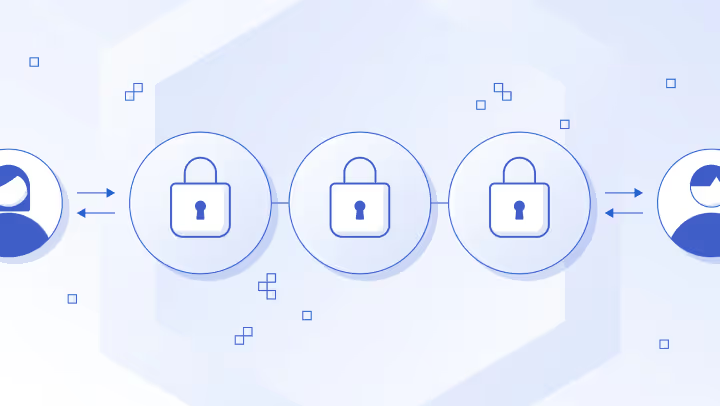How To Thrive as a Web3 Founder
A Web3 founder builds an application or protocol using decentralized technologies, such as blockchains, smart contracts, and oracle networks.
Being an entrepreneur is hard in any industry. But the path of the Web3 founder is especially tough. For one, it’s far less well-trodden. Traditional startup founders have a large canon of knowledge to draw on. While an equivalent Web3 doctrine is being built, Web3 founders are still like explorers navigating uncharted lands.
One thing an aspiring founder can do is hear from their peers. Their stories can help founders to find a secure path through the challenging terrain of Web3 entrepreneurship. With this in mind, we got together with some members of our own founder’s community—Startup with Chainlink—to better understand what it takes to get an early-stage Web3 startup off the ground. We asked them what they wished they had known before starting out, the skills they needed to improve on, and much more.
What follows are the key takeaways from the discussion:
- Understand That There’s No “Typical” Web3 Founder
- Focus On Your Inner Game
- Get All The Outside Help You Can
- Build Your Product Before Your Community
- Learn How To Focus On What Really Matters
Understand That There’s No “Typical” Web3 Founder
In our founder’s panel, we had a healthy mix of seasoned entrepreneurs, college graduates, marketing experts, and engineers. If you are worried that you need to be a particular type or have a specific background, be assured that Web3 is still a frontier open to anyone willing to learn.
Our founders all took different paths and were able to offer complementary perspectives.
Here’s an overview of the participants:

Despite their disparate profiles, several common threads wove throughout their founders’ stories.
Focus On Your Inner Game
Beyond the usual technical and commercial challenges, founders must also prepare to face a number of personal challenges. These can come in the form of stress, self-doubt, or decision fatigue. Thus, facing these challenges requires some degree of inner mastery.
At one point in the discussion, Aki from DLC.link referred to “The Inner Game of Tennis” (1974), a classic guide to “overcoming the self-doubt, nervousness, and lapses of concentration that can keep a player from winning”. Ostensibly this book is about tennis, but the lessons can also be applied to entrepreneurship too.
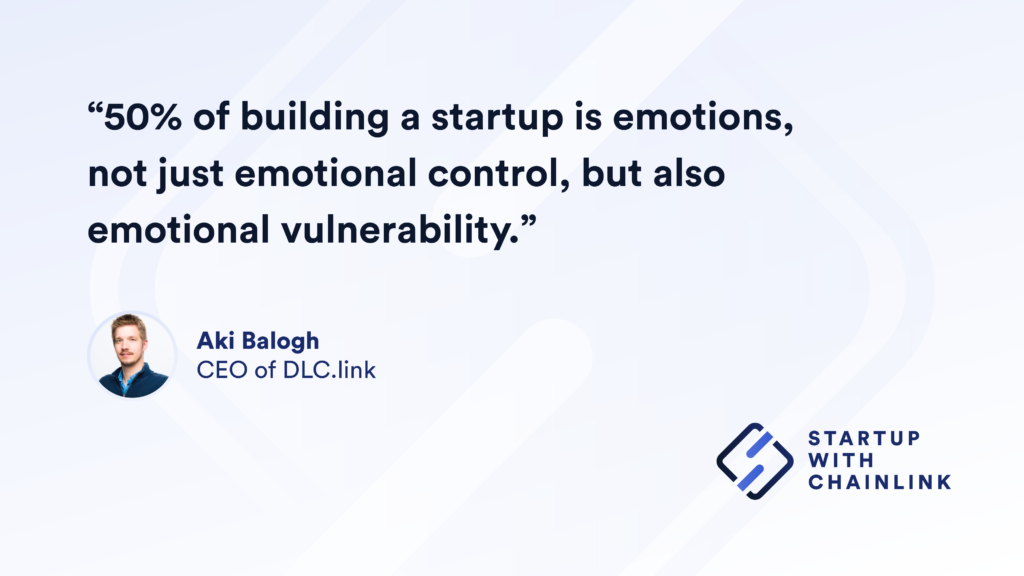
When mastering their inner game, all the founders in our panel mentioned similar challenges.
Managing People and Delegating Responsibility
Several panelists discovered that they had lacked the experience required to deal with internal conflicts and difficult personalities. They often felt that they had to play the role of surrogate counselor to their team, which required them to exercise more of their softer skills than expected—skills such as empathy and active listening. Ethan from Playground recommends that founders “don’t put off hard conversations”. As with most things, procrastination only makes things worse: “[…]the longer you put off[…]a hard conversation, the worse the problem will probably become,” he said.
The panelists also recognized that they initially found it difficult to delegate and relinquish control of certain tasks. This is because teams can grow very quickly, which can often take founders by surprise. Many early-stage founders get used to doing everything themselves, and struggle when they have to start distributing work.
Lastly, founders need to admit when they don’t know enough to make a certain decision. Skillful leaders strike the right balance between being decisive in areas where they are knowledgeable and delegating and trusting others.
Not Knowing
The path of the first-time founder can be especially stressful. For example, graduate founders with technical degrees such as computer science or information technology can find their new commercial responsibilities overwhelming at first. They need to quickly get up to speed with a wide range of subjects such as legal structures, compliance, and people management. “[…]all of that was definitely new and scary. I wish people had told me that, you know, this is a lot harder than it looks,” said Claudia from Banyan. To cope with this challenge, some technical founders work with executive coaches. “It’s some of the best money that you’ll ever spend, especially if you’re like a first-time founder or you’re coming from an engineering background,” advised Claudia.
Keeping Up With the Pace of Change
The Web3 space produces a constant stream of news about partnerships, projects, and technical innovations, which can make some founders feel like they’re falling behind. For Ethan from Playground, the antidote is to maintain a long-term perspective and understand that, despite the industry’s fast progress, it still has a long way to go; “we’re literally at the very beginning of Web3,” he said.
Even Aki from DLC.link, who has a wide breadth of entrepreneurial knowledge and experience, said: “I was really surprised by how fast things move, especially if you founded a venture backed startup, there are about 10 or 12 learning curves that you’re on at the same time”.
Yet the path to mastery is not the sole responsibility of the founder alone. When you become a founder in Web3, you join a tight-knit community of entrepreneurs and experts who’ve trodden the same path that you’re about to start out on. It makes sense then, to turn to them for help.
Get All The Outside Help You Can
Many founders struggle to ask for help because they’ve put so much effort into convincing backers that they’re trustworthy and competent. Once they’ve earned the trust of investors, it can be hard to admit that they have major knowledge gaps. This requires founders to show vulnerability—a skill that comes with mastering the “inner game”. But all founders agreed that it’s essential to swallow your pride or insecurity and get all the help that you can.
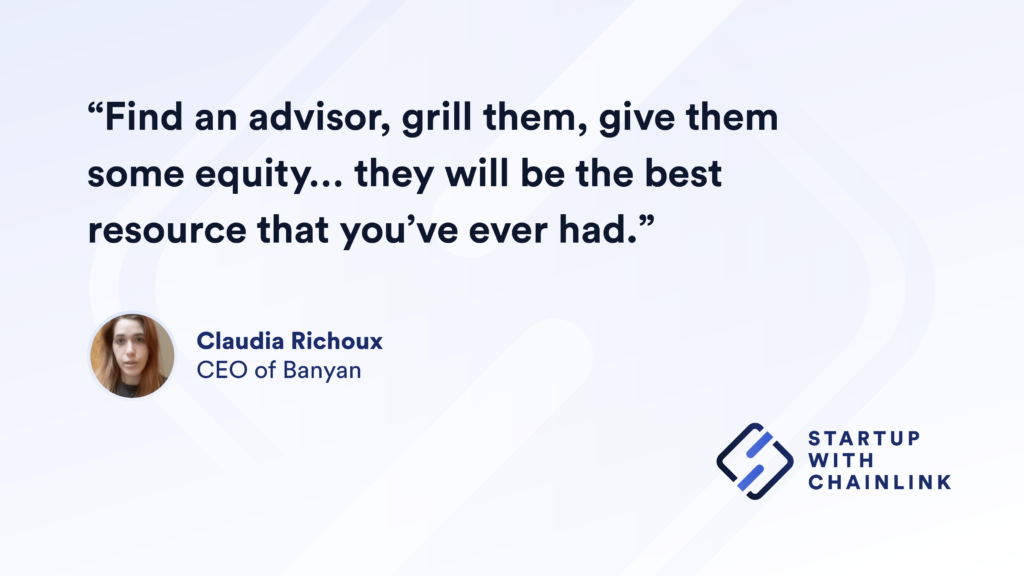
Advisors
First-time founders in particular need to find a reliable advisor as early as possible. This is simply because they have more knowledge gaps to fill. Claudia from Banyan had this simple advice for aspiring founders: “Use your angels, use your advisors, have really good strong relationships with them”. After she and her co-founder learned to ask their advisors when they were unsure about something, things got a lot easier.
Further Education
Some founders have the right commercial chops but weak technical skills. Again, one could leave this responsibility to the developers but there are also pitfalls with this approach. As Marco from Ensuro pointed out, technical teams “have quite a lot of power” when it comes to making product decisions. “Learning how to program and build stuff by yourself is extremely important,” he said. If your developers tell you something can’t be done, you need to be able to understand why; “Being able to understand the nuts and bolts of the product puts you in a better position to be a leader”. In many cases, doing a short online course such as Alchemy University or 30 Days of Web3 is enough to help founders speak the same language as their engineers.
Build Your Product Before Your Community
Early-stage Web3 founders often face a dilemma. Do they channel those resources toward building a community first? Do they work on inspiring potential backers before a product exists? Or do they knuckle down and build a solid product before launching it to the public?
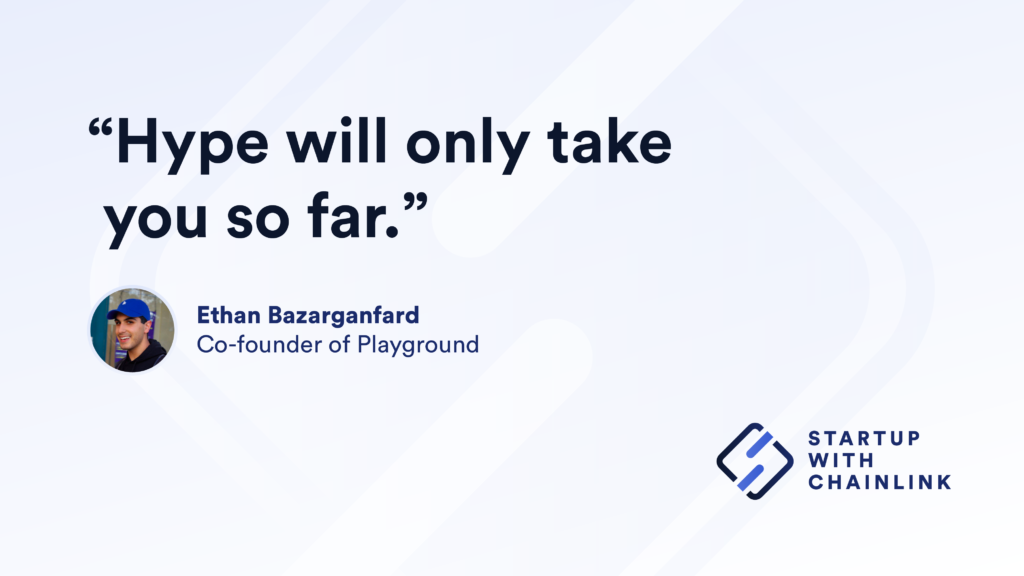
For Many NFT Projects, Community and Product Are Equally Important
Ethan from Playground revealed that his team had to work on both product and community simultaneously—which is perhaps the case with many other NFT projects. Admittedly, he didn’t need to build a community from the ground up. After identifying a compelling use case for NFTs (powered by data), he approached a creator who already had a large following on Instagram. Originally, the creator’s community had little affinity for Web3, but after the success of the Playground collaboration, many fans became curious about this novel new use case—a feat that Ethan hopes to repeat with other creators. But he couldn’t have done it without a product to showcase. “I would say product first, community second, but they’re so intertwined,” he admitted.
B2B Projects Might Not Need Community At All
For Claudia from Banyan, early experiments with community building weren’t as smooth. “We started by making a Discord and then quickly realized that’s not where we’re going to win customers for the kind of infrastructure that we’re building,” she said. For a B2B startup like hers, it was better to leverage her personal network and connections in the Filecoin ecosystem. Marco from Ensuro prefers the “Exit to Community” model as espoused by Vitalik Buterin. “You want to first find the product-market fit with a limited number of people involved in the product,” he said.
Learn How To Focus On What Really Matters
When discussing “inner game,” we touched on the need to delegate and let go of low-level tasks. Aside from building trust in your team, delegation is also necessary to reclaim some semblance of focus.
As a founder, you will be facing a torrent of information and decisions to make. Founders who quibble about a dApp’s font sizes often have trouble prioritizing their focus. Someone else needs to discover and fix these minor problems while they focus on decisions where their input is truly needed.
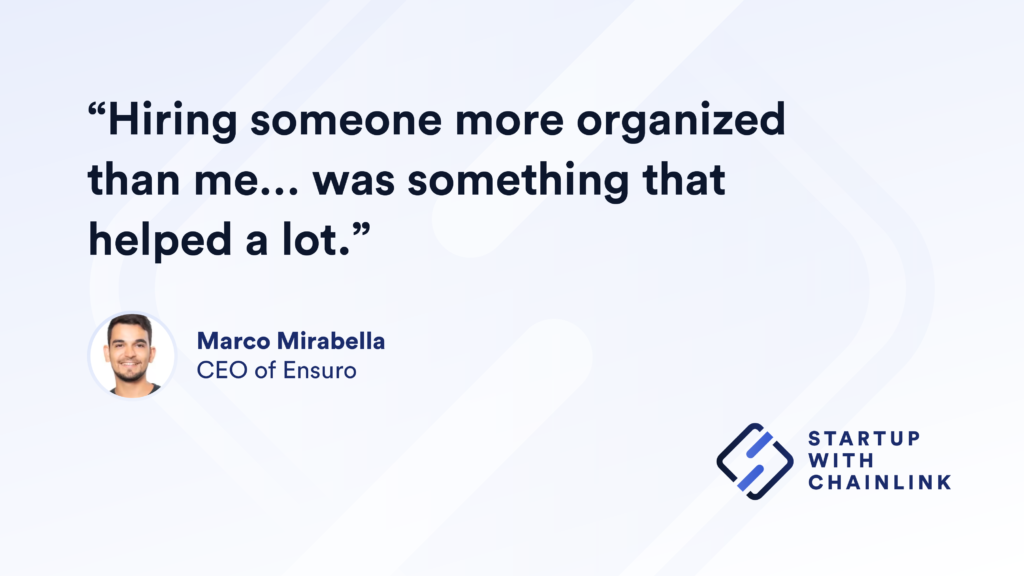
Hire People Who Can Execute
For most of the founders on the panel, the key to regaining lost focus was hiring someone with the ability to execute with minimal instruction.
Early on, a fellow founder advised Claudia from Banyan to hire people who can “do the needful”. This meant finding people who don’t need confirmation for every small decision—people who can “get things done,” even if they might not do them perfectly.
Likewise, Marco from Ensuro found that hiring someone who was more organized than him made all the difference. This new hire immediately set to work organizing Scrum meetings, setting up task management systems, and chasing up tickets—this new structured approach also helped Marco to streamline his own focus and that of his team; “the productivity of the entire team spiked”.
Learn How To Say No
Aki from DLC.link also stressed the importance of saying no and overcoming feelings of guilt when declining activities that aren’t a good use of your time. The main challenge is balancing empathy with team members with the need to set boundaries and keep them.











